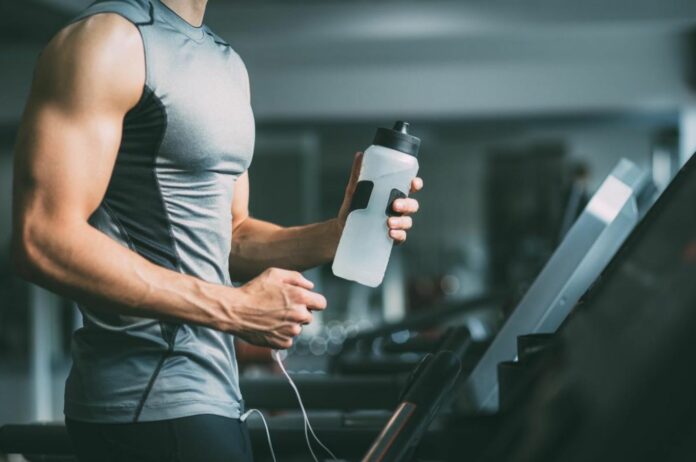Should You Drink Beer After Exercise?
If working out has become an integral part of your daily routine, chances are you’ve indulged in post-exercise social drinks at some point. But could this seemingly harmless practice be undermining your weight loss efforts?
The motivation for many to exercise, aside from overall health, is to maintain a healthy weight. Considering a pint of beer carries around 200 calories, it’s unlikely that having a moderate amount of beer after a run would lead to significant weight gain.
In an article in The Conversation, Dr. Philip J Atherton, an Associate Professor, and Matthew Brook, a Ph.D. candidate at the University of Nottingham, shed light on the advantages and disadvantages of consuming alcohol in relation to physical exercise.
People often indulge in activities like running and various forms of workout primarily to achieve fitness and shed excess weight. Interestingly, they also tend to relish the social side of these activities. For instance, after an intense running session, many prefer unwinding at a pub or club house with a chilled beer.
But is that harmless?
Looking purely at the data, running primarily consumes the body’s reserves of carbohydrates (sugar) and fats to fuel muscle activity. An individual weighing around 70 kg would burn nearly 120 calories for each mile run. A pint of beer or lager carries roughly 200 calories, suggesting that enjoying a beer after a run wouldn’t necessarily lead to significant weight gain. However, considering the calorie content of beer, considerable distances would need to be run to offset the impact of high consumption.
The Potential Advantage
Having an occasional beer post-run wouldn’t necessarily cause you to gain weight. But could it actually be beneficial?
Long-duration exercise depletes the body’s glycogen (sugar) reserves in the liver and skeletal muscles. These reserves are crucial to stave off fatigue and sustain exercise performance, preventing you from “hitting the wall.” Thus, diets rich in carbohydrates are usually suggested for dedicated exercisers.
Loss of water and electrolytes through sweating, especially in warm conditions, is a given during exercise. Post-exercise, it’s critical to rehydrate and provide the body with sufficient nutrition to recover and adapt.
To this end, many people resort to sports drinks, packed with electrolytes like potassium and sodium, vital for bodily functions, and carbohydrates, a source of energy. While beer contains less sodium, its nutritional profile bears a striking resemblance to many sports drinks. This might raise the question: why not just consume beer as it offers many of the beneficial nutrients found in a sports drink? But there could be drawbacks…
The Caveat
The potential downside of consuming beer after exercise is its alcohol content (typically around 4-5% by volume). A side effect of alcohol is its diuretic nature, leading to increased urination. Consequently, it may not be an efficient rehydration method, which could potentially impede recovery after exercise.
Running is a strenuous activity for our skeletal muscles, including arms, legs, and trunk, constituting about 50% of body weight. It can inflict significant damage on muscles and other adjacent tissues, like bones and tendons. The shock waves produced as the feet impact the ground can cause micro-damage in muscles and adjacent tissues. This is why we experience pain in the hours and days following running, and why it can result in injury.
As our training progresses, our muscles should become more resistant to these stressors. Therefore, a significant worry is how alcohol might influence recovery post-exercise and susceptibility to injury. Regrettably, some studies indicate that alcohol can adversely affect recovery and might boost the likelihood of injury.
Upon reviewing research specifically related to muscle tissue, it becomes glaringly evident why alcohol consumption could hinder recovery processes and gains in fitness associated with exercise. Research (primarily in animals) demonstrates that alcohol intake negatively influences many muscle processes involved in the elimination of damaged proteins and their replacement with new ones.
Long-term, excessive alcohol consumption’s impact on health, regardless of exercise (e.g., fatty liver and cirrhosis development), is well-documented. With respect to exercise, the liver is a crucial glycogen reservoir. Despite beer’s nutritional merits, there is evidence suggesting alcohol can hinder liver glucose storage and release. These factors could potentially be harmful to ideal exercise performance and recovery.
Excessive alcohol intake can also suppress muscle’s ability to act as a “glucose sink”. A key health advantage of exercise is blood sugar regulation, which aids in avoiding diabetes. However, alcohol can counteract exercise’s sensitizing effect on blood sugar control.
Moreover, studies indicate that alcohol consumption can result in hormonal imbalances. For instance, when paired with exercise, alcohol raises catabolic hormones like cortisol, which contributes to muscle breakdown. Simultaneously, alcohol can reduce anabolic hormones, such as testosterone, which assists in muscle building. Long-term shifts in the balance of these hormones can be detrimental to health.
So, is it fine to have a beer after a run? Evidently, despite its caloric content, alcohol intake can have a negative impact on the body’s response to exercise. Overconsumption of alcohol could impact aspects of recovery, adaptation, and might even affect the long-term health benefits of exercise. However, it’s important to interpret these findings in context. Research connecting alcohol consumption to exercise benefits is limited and inconclusive.
While more research is needed in this area, having one or two beers post-exercise is unlikely to significantly affect responses to exercise, unless you’re a professional striving for that extra 0.1%. In fact, in many instances, moderate alcohol consumption has been demonstrated to be protective rather than harmful. The key, as always, is moderation.
Image Credit: Shutterstock
